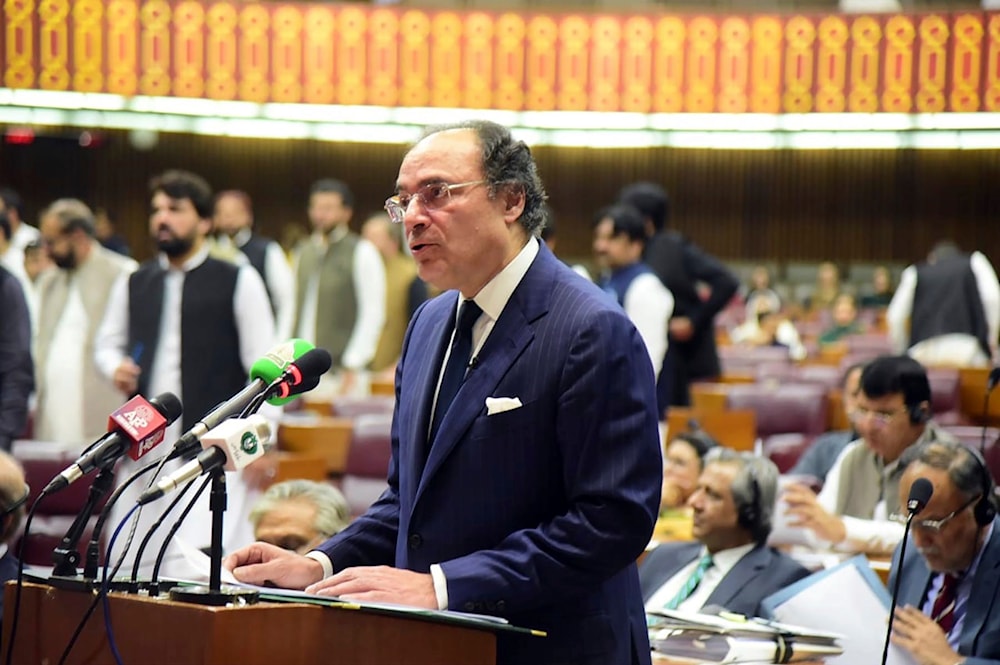Pakistan reaches $7 bn aid deal with IMF
The latest bailout, in the form of loans, follows the government's commitment to implement reforms, including major efforts to broaden the tax base.
-

Pakistan's Finance Minister Muhammad Aurangzeb speaks and presents the Federal Budget before the National Assembly of Pakistan, in Islamabad, Pakistan on June 12, 2024. (AP)
Pakistan and the International Monetary Fund reached a three-year $7 billion aid package deal, the Washington-based institution revealed on Friday. The new program aims to "cement macroeconomic stability and create conditions for stronger, more inclusive, and resilient growth," according to the statement. However, it still needs to be validated by the Fund's Executive Board.
Faced with chronic mismanagement, Pakistan's economy was on the brink, challenged by the COVID-19 pandemic, the effects of the war in Ukraine, and supply difficulties that fueled inflation. Additionally, record flooding in 2022 affected a third of the country.
With its foreign currency reserves dwindling, Pakistan faced a debt crisis and was compelled to seek assistance from the IMF, securing its first emergency loan in the summer of 2023.
Tax reforms in Pakistan
Coming to Pakistan in the form of loans, the latest bailout follows a commitment by the government to implement reforms, including major efforts to broaden the country's tax base. However, in a nation of over 240 million people, only 5.2 million filed income tax returns in 2022.
During the 2024-25 fiscal year, which begins on July 1, the Pakistan government aims to raise nearly $46 billion in taxes, a 40% increase from the previous year. As part of this effort, Pakistan's tax authority blocked 210,000 SIM cards of users who had not filed tax returns earlier this month in a bid to widen the revenue bracket.
Fiscal strategy
The South Asian nation initiated discussions with the IMF for a new multi-billion dollar loan agreement, marking its 24th bailout in over six decades, to support its economic reform program. With around 40% of the population already living below the poverty line, the World Bank warned in April that 10 million more Pakistanis could fall below this threshold.
To address IMF demands, Islamabad aims to reduce its fiscal deficit by 1.5% to 5.9% in the coming year. The previous nine-month $3 billion IMF deal provided a lifeline but required unpopular austerity measures, including the removal of consumer cost subsidies.
In recent months, Pakistan's current account balance has slightly recovered, and high inflation is just beginning to decrease. However, foreign debt remains very high at $242 billion, with debt servicing expected to consume half of the government's income in 2024, according to the IMF.
The Fund also anticipates 2% growth this year, with inflation projected to reach nearly 25% year-on-year before gradually decreasing in 2025 and 2026.

 3 Min Read
3 Min Read








